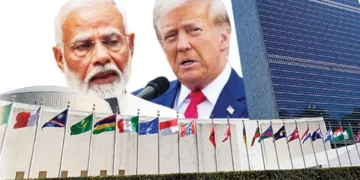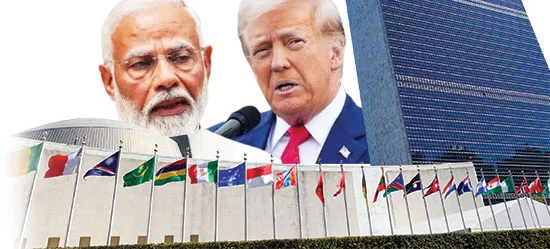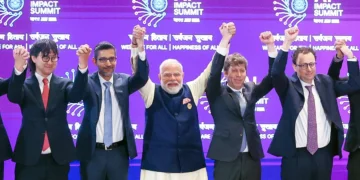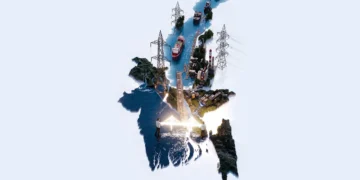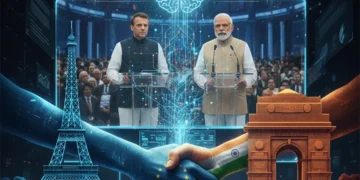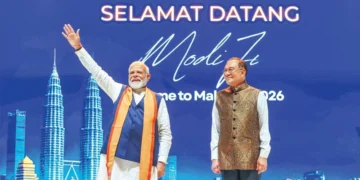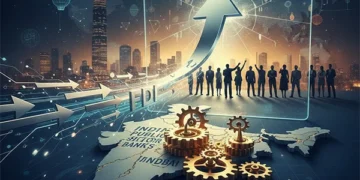IN a fiery address to the United Nations General Assembly, US President Donald Trump delivered a scathing critique of the global body, labeling it as an ineffective institution of “empty words” that fails to solve real-world problems.
While the confrontational rhetoric was signature Trump, the core message – that the UN in its current form is obsolete – inadvertently endorsed a vision long championed by Narendra Modi. The Indian Prime Minister has spent a decade arguing that the 75-year-old institution risks “irrelevance” if it does not radically reform.
Trump, in his speech on September 23, questioned the very purpose of the organization he was addressing. “What is the purpose of the United Nations?” he asked the assembled world leaders. “The UN has such tremendous potential…
but it’s not even coming close to living up to that potential. All they seem to do is write a really strongly worded letter — and then never follow that letter up. It’s empty words and empty words don’t solve war”.
The US President portrayed the UN as a dysfunctional bureaucracy, recounting personal grievances with a broken escalator and a faulty teleprompter as metaphors for the institution’s broader incompetence. This public condemnation from a leader of a permanent member of the Security Council gives powerful, albeit unintentional, backing to the arguments Prime Minister Modi has consistently made on the world stage since his first UN address in 2014.
At that time, PM Modi warned that t “Institutions that reflect the imperatives of 20th century won’t be effective in the 21st” and would “face the risk of irrelevance”. Just last year, at the UN’s ‘Summit of the Future,’ PM Modi reiterated this stance, declaring that for the sake of global peace, “reforms in global institutions are essential. Reform is the key to relevance.”
While the two populist leaders arrive at their conclusions from starkly different starting points, their diagnosis of the UN’s ailment is strikingly similar. President Trump’s ‘America First’ ideology views multilateralism as a constraint on US sovereignty, a “globalist” project that siphons American wealth and power. His solution is to disengage, defund, and dismantle, as evidenced by his administration’s withdrawal from the WHO and deep cuts to UN funding.
PM Modi, in contrast, is a constructive disruptionist. His critique is not aimed at destroying the multilateral system but at reshaping it to reflect contemporary geopolitical realities. He argues that bodies like the UN Security Council, the IMF, and the World Bank are anachronistic, failing to give adequate voice to the rising powers of the 21st century, particularly from the Global South.
The convergence of these two powerful critiques places the United Nations in an unprecedented bind. For years, calls for reform from nations like India, Brazil, Germany, and Japan (G4) have met with procedural delays and resistance from the permanent five members of the Security Council.
Now, Trump’s broadsides lend a new, disruptive energy to the debate. His dismissal of the UN as a mere talking shop resonates with a growing global scepticism about the efficacy of legacy institutions. By questioning the fundamental value of the organisation, Trump’s rhetoric strengthens the hand of those like PM Modi who argue that the status quo is unsustainable.
